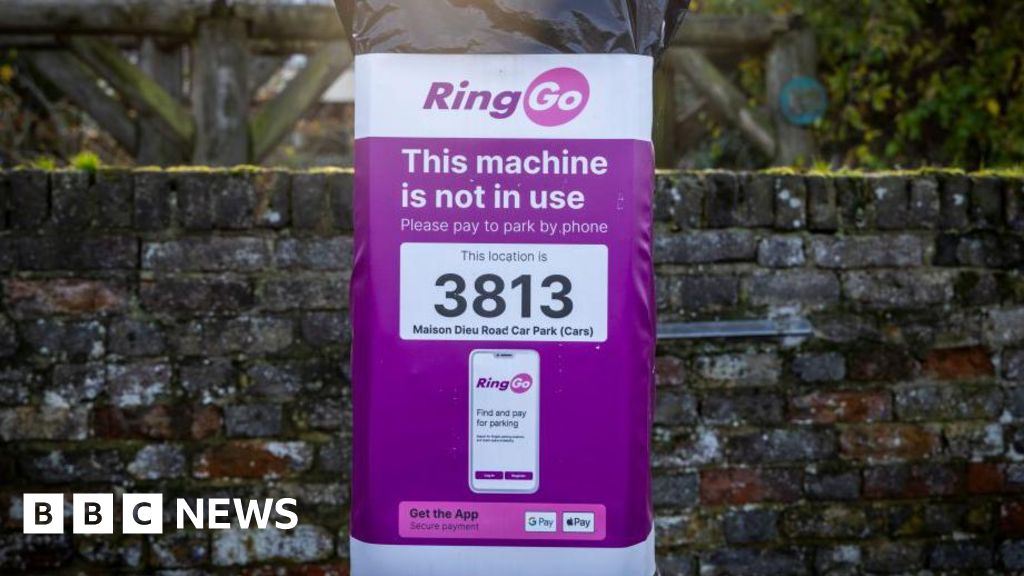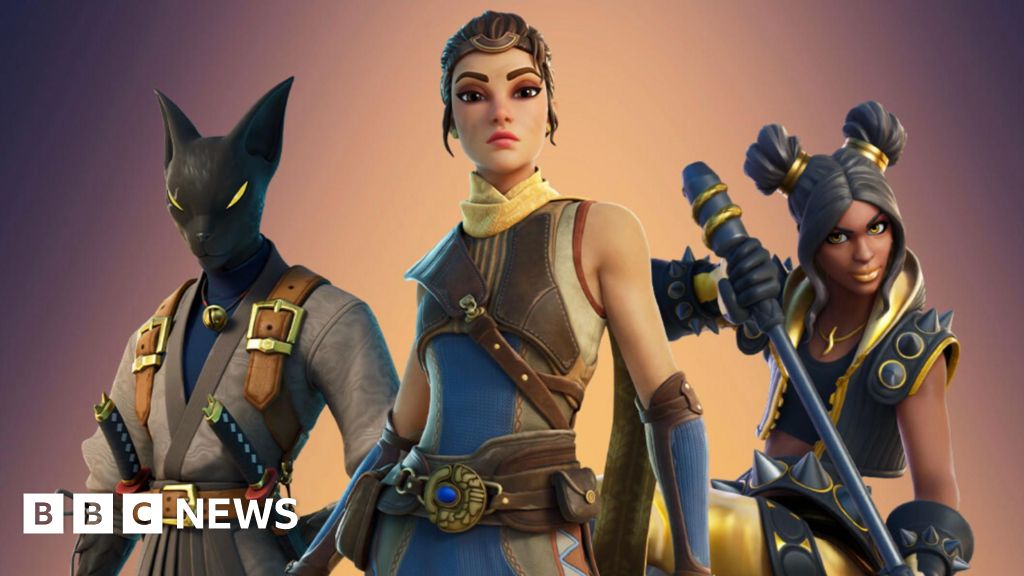ARTICLE AD BOX
By Frances Mao
BBC News, Sydney
image sourceADAM PEATY/TIKTOK
image captionA modern way to celebrate: Swimmer Adam Peaty flashing his gold on TikTokAt first the video seems to be just an ordinary guy in a tracksuit, miming a rap song on his phone.
But then British swimmer Adam Peaty whips out his Olympic gold medal.
And the crowd, in the comments section, goes wild.
"We're living in a time where Olympic athletes casually make TikToks after winning a gold medal," reads one comment.
The world had watched the 26-year-old clinch victory in the men's 100m breaststroke. Barely a few hours later, he was sharing his win on TikTok.
Welcome to #OlympicTok - the channel where Gen Z athletes are using their favourite social media app to share their Games experience.
Broadcasters may own rights to all the sporting action, but TikTok is offering a different viewing experience altogether.
From tours of the Athletes' Village to "A Day in the Life Of" vlogs, these snippets of athlete life have exploded on the app, drawing tens of millions of views.
It's not the first time social media has featured at an Olympics Games. Athletes are also using older platforms - Facebook, Twitter and Instagram- to express themselves.
But this year, TikTok - the most downloaded app of 2020 - is having its moment.
"This is the TikTok-athlete generation. Or the athlete-TikTok generation. I'm not sure which one comes first," says Jonathan Hutchinson, a social media expert at the University of Sydney.
The TikTok Games
What does backstage at the Olympics look like on TikTok?
One clip shows nine Israeli baseball players jumping up and down on the same bed to test its cardboard frame.
Another shows Australian teammates taping a sign to their balcony to flirt with the American athletes in a neighbouring tower.
There are videos of basketballers learning how to put on a tie for the opening ceremony; sprinters trying out Japanese snacks; fencers making fun of their own slip-ups.
As one TikTok user wrote under a video: "Olympians are seeming like normal people this year...".
The athletes - most of them young adults - film themselves doing dorky dances and pranking teammates - in general, goofing around.
image sourceRayssa Leal / Margie Didal / TIKTOK
image captionThe TV cameras may have captured the tricks performed by Rayssa Leal and Margie Didal but they didn't get the TikTok dance on the sidelines"You get to see that lighter side of the athlete - someone who is going through this amazing life experience and bringing all of their fans into that space with them," says Dr Hutchinson.
It is that sense of fun which is core to TikTok's identity, he says.
It sets it apart from other apps like Instagram, which users associate with aspirational, beautiful content. Anything too polished doesn't do well on TikTok. Its users prefer videos which are funny, irreverent, and above all "authentic".
So bringing that lens to an event like the Olympics - the world's biggest, shiniest stage - is near irresistible.
What else makes TikTok so popular?
Traditionally, the public only ever sees Olympians when they're in competitions - performing their incredible, superhuman feats of speed, strength and skill.
Even the word Olympian means "suggestive of the gods", derived as it is from the Ancient Greek deities.
But on TikTok, that mystique is shattered. One TikTok user, after watching some athletes joke around, marvelled that Olympians were just "real people" after all.
For the athletes - performing to empty stadiums these Games - TikTok also gives them a platform to hear from their fans, and presents opportunities for certain personalities to break through.
The most popular Olympians on TikTok aren't the most famous, household names. Instead they're slightly more obscure athletes, such as Australian diver Sam Fricker and US rugby player Ilona Maher, who have attracted hundreds of thousands of followers in the past week.
Dr Hutchinson says those athletes are being smart and "strategic" about using TikTok to boost their profile.
"They might not win a medal while they're there, but what they are doing is taking the hype that's around them at the moment and leveraging that. So it's kind of a personal investment into the next phases of their career," he says.
The Olympic stars on TikTok
- Sam Fricker, 19, Australian diver: 1.1 million followers. Posts up to 10 TikToks a day about athlete life at the Games. Has a chatty, affable style.
- Ilona Maher, 24, US Rugby Sevens: 725,000 followers. Known for sassy takes and "thirsty" videos for "tall foreign demigod Olympians".
- Tyler Downs, 18, US diver: 913,000 followers. One of the first Olympians to go viral over being starstruck seeing Simone Biles.
- Margie Didal, 22, Filipino skateboarder: 1.5 million followers. The skating sensation's cheerful charisma made her a standout in front of both TV and phone cameras.
Knowing the game
Like any good investment, a considerable amount of effort goes into it.
Maher has joked about spending six hours a day on the app, creating Olympic content "so the world can get an inside look".
Many athletes also make videos in response to user comments, which on TikTok are almost as important as the clip itself. Users like to read what other people are thinking and athletes get direct feedback.
image sourceSam Fricker / Ilona Maher / TIKTOK
image captionSam Fricker and Ilona Maher have become leading TikTok personalities at the GamesThe app rewards athletes who understand its users, and their culture of inside jokes, dances, and memes says Dr Hutchinson.
These trends change from week to week - but if an athlete can tap into one, their video can go gangbusters.
Take Adam Peaty's gold medal TikTok for example. He used the Drake song Know Yourself- a track often used on TikTok to represent a moment of significant realisation.
In his case, it's the fact that he's an Olympic champion.
As one user dryly commented: "Halfway through the race he was like 'Damn I have a good idea for a TikTok'".
Any limits?
With the variety of social media apps these days, experts say it's interesting to characterise their different uses.
Facebook and Instagram are platforms for a winner's earnest thank-you speech. Twitter has become a press release service for stars like Simone Biles to break news. TikTok is the fun one.
But for each platform, basic protocols apply on what athletes can share. Goofing around is accepted; making a political comment is crossing the line.
The other strict rule? Do not post any sporting action.
It's rare to see any clips from the track, field, stadium, pool or velodrome posted on #OlympicTok.
Those rights still belong to the broadcasters and their multi-million dollar contracts.
All TikTok can offer is backstage access, which for many viewers is a whole new world.
"The traditional model is what it's always been - you have the key events, the opening ceremony, the heats, the finals - none of that changes. But what we're seeing now is this behind-the-scenes experience, produced by the athletes themselves," Dr Hutchinson told the BBC.
"It's not really a challenge to what we know. In many ways it's complementary to the traditional media event."

 3 years ago
194
3 years ago
194








 English (US) ·
English (US) ·